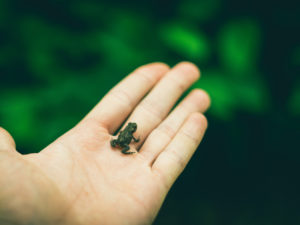Shift to a Relational Mindset
Relationships are the interwoven bonds that form the framework of place within which we exist. It is the way in which two or more beings are connected. Think about a honeybee. Bees fly around collecting nectar and in doing so spread pollen from plant to plant, ensuring they will be able to pollinate. Imagine the bee’s role with the land and its purpose in the ecosystem—while it is helping itself by collecting nectar to make honey, it is at the same time giving back to the ecosystem it is part of by pollinating plants.
What is our human role in the ecosystem? Indigenous peoples of the world have historically lived in a reciprocal relationship of co-existence with the earth and all its beings while Western culture has tended to see the environment as something to be used to maintain a way of life, or to be changed to suit its needs. Relational thinking invites us to live in equitable coexistence with the land, living out of a place of respect, reciprocity, and the recognition of all beings. Instead of operating from a perspective of dominance, trying to change what is happening around us or controlling the environment, we can give space for the needs of the land itself and other species to guide our human behavior.
Making a conscious effort to lowering environmental impact is helpful, but a shift in mindset in how we interact with the environment and ecosystem around us may be more fundamental. As we learn to think about how human culture can contribute to the life cycle, rather than just taking from it, what will we discover is possible?
Did you take this action? Report it!
Help us show our collective community impact by reporting that you took this action.




